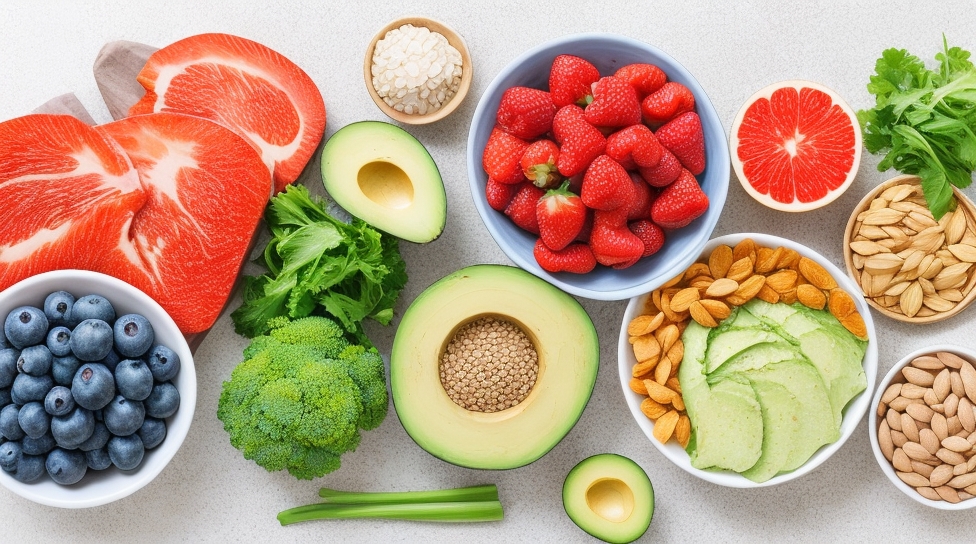Nutrition is the cornerstone of a healthy and vibrant life. Just as a car requires the right fuel to run efficiently, our bodies need essential nutrients to function at their best. In this article, we’ll dive into the ten essential nutrients your body needs for optimal health. From carbohydrates to phytonutrients, we’ll explore their roles, sources, and recommended daily intake.
Carbohydrates
Carbohydrates are like the body’s gasoline, providing energy for all daily activities. They come in two forms: simple and complex. Simple carbohydrates, found in sugary foods, give quick bursts of energy, while complex carbohydrates, found in whole grains and vegetables, provide long-lasting fuel. The recommended daily intake for adults is about 45-65% of total calories.
Proteins
Proteins are the building blocks of life. They repair tissues, support growth, and play a vital role in various bodily functions. Sources of protein include meat, dairy, beans, and nuts. The recommended daily intake is around 0.8 grams of protein per kilogram of body weight.
Fats
Don’t fear fats; they’re essential for good health. Fats play a crucial role in brain function, hormone production, and the absorption of fat-soluble vitamins. Healthy fats come from sources like avocados, olive oil, and fatty fish. Aim for 20-35% of daily calories from healthy fats.
Vitamins
Vitamins are micronutrients that keep your body running smoothly. There are various types, each with specific functions. For example, vitamin C supports the immune system, while vitamin D aids in calcium absorption. Ensure a diverse diet to obtain all necessary vitamins.
Minerals
Minerals are like the body’s spark plugs, keeping things running efficiently. Calcium supports bone health, magnesium helps with muscle function, iron is essential for oxygen transport, and zinc supports the immune system. Incorporate mineral-rich foods into your diet.
Fiber
Fiber is the unsung hero of digestive health. It aids in regular bowel movements and lowers the risk of heart disease. There are two types: soluble and insoluble. Aim for 25 grams of fiber for women and 38 grams for men daily.
Water
Staying hydrated is paramount for good health. Water is involved in nearly every bodily function, from digestion to temperature regulation. The “8×8” rule (eight 8-ounce glasses per day) is a good guideline, but individual needs vary.
Antioxidants
Antioxidants are like bodyguards for your cells. They protect against free radicals that can damage DNA and lead to disease. Common antioxidants include vitamin C, vitamin E, and beta-carotene, found in colorful fruits and vegetables.
Omega-3 Fatty Acids
Omega-3 fatty acids are brain food. They support heart health, reduce inflammation, and aid in cognitive function. Find these healthy fats in fatty fish like salmon, flaxseeds, and walnuts.
Probiotics
Probiotics are the friendly bacteria that maintain gut health. Yogurt, kefir, and sauerkraut are rich sources. They help with digestion and can even boost your immune system.
Prebiotics
Prebiotics are like probiotics’ favorite food. They’re non-digestible fibers that promote the growth of beneficial gut bacteria. Foods like garlic, onions, and bananas contain prebiotics.
Phytonutrients
Phytonutrients are nature’s pharmacy. They provide plants with their vibrant colors and offer numerous health benefits to humans. Think of them as your body’s insurance policy. Incorporate a rainbow of fruits and vegetables to get the full spectrum.
Hygiene and Safety
Maintaining optimal health goes beyond just what you eat. Proper food handling and storage are crucial to prevent foodborne illnesses. Additionally, while supplements can be beneficial, they should complement a healthy diet, not replace it.
Conclusion
In conclusion, your body requires a variety of nutrients to thrive. The ten essential nutrients discussed in this article are the building blocks of good health. Remember that a balanced diet rich in these nutrients is the key to feeling your best. So, take charge of your health by making informed choices about what you eat.
FAQs
- What happens if I don’t get enough of these essential nutrients?
- Insufficient intake of essential nutrients can lead to various health issues, including fatigue, weakened immune function, and even chronic diseases. It’s essential to maintain a balanced diet to avoid deficiencies.
- Are supplements necessary if I eat a healthy diet?
- If you have a well-balanced diet, supplements may not be necessary. However, consult with a healthcare professional if you have specific concerns or dietary restrictions.
- Can I get all these nutrients from plant-based sources?
- Yes, many plant-based foods are rich in essential nutrients. With proper planning, a vegetarian or vegan diet can provide all the necessary nutrients.
- How can I ensure I’m getting enough fiber in my diet?
- You can increase your fiber intake by including more whole grains, legumes, fruits, and vegetables in your meals. Be sure to drink plenty of water to support healthy digestion.
- What are some signs of dehydration to watch out for?
- Signs of dehydration include dry mouth, dark urine, dizziness, fatigue, and increased thirst. It’s essential to stay hydrated throughout the day, especially in hot weather or during physical activity.


